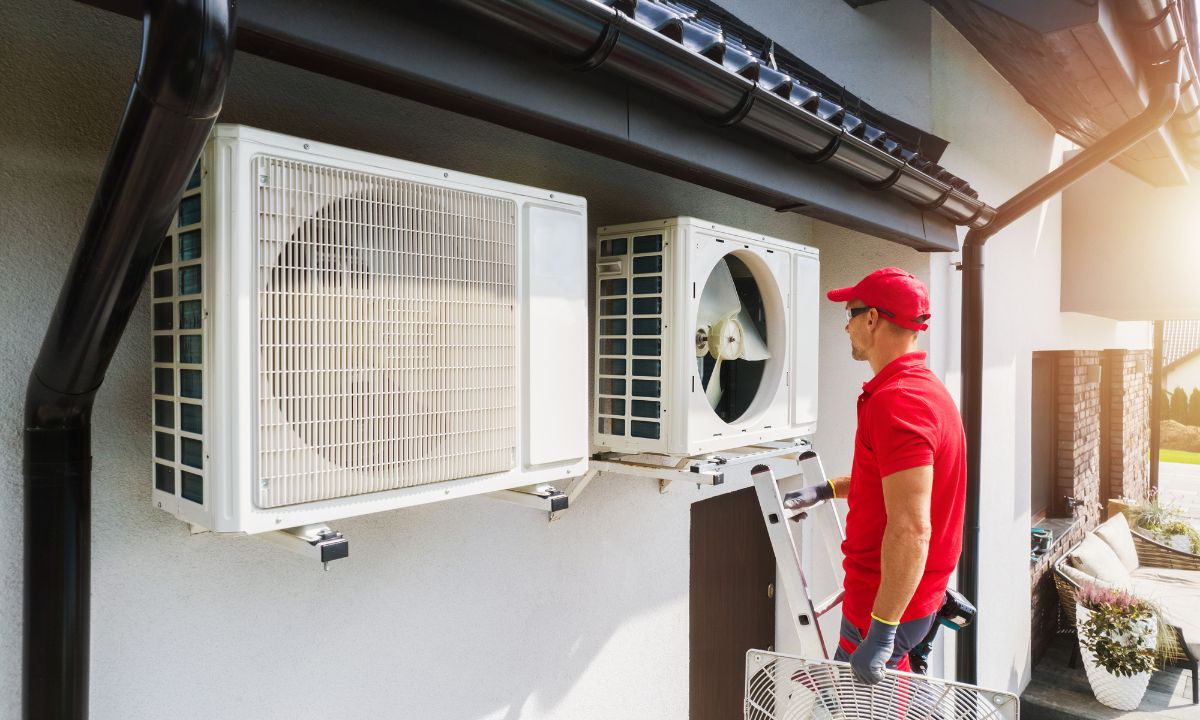Why Regular Home Maintenance Is More Than Just a Chore
 Owning a home is huge and one of the most valuable investments many of us will ever make. Like any valuable asset, your home requires care and upkeep to ensure it stays in great condition, retains value, and remains a safe, comfortable haven.
Owning a home is huge and one of the most valuable investments many of us will ever make. Like any valuable asset, your home requires care and upkeep to ensure it stays in great condition, retains value, and remains a safe, comfortable haven.
Here’s why making regular home maintenance a priority pays off in the long run:
1. Preserve Property Value
A well-maintained home can significantly enhance curb appeal and preserve, or even increase, property value. Regular upkeep such as painting the exterior, maintaining landscaping, and fixing minor issues as they arise helps prevent wear and tear. If you ever decide to sell, a home in great condition can command a higher market price and attract more interested buyers.
2. Avoid Costly Repairs
Regular home maintenance can prevent small problems from escalating into expensive repairs. For instance, addressing minor leaks early can help you avoid costly water damage, while keeping gutters clean can prevent structural damage to your foundation. Routine inspections of key systems such as your roof, HVAC, plumbing, and electrical can catch potential issues before they become major headaches, saving you both stress and money in the long run.
3. Ensure Safety and Comfort
A safe and comfortable home is a happy home. Tasks like checking smoke detectors and carbon monoxide alarms, inspecting electrical systems for hazards, and maintaining your heating and cooling systems are critical to your family’s safety. In addition, regular maintenance helps ensure that your home remains a comfortable place to live, whether it’s by keeping temperatures stable, addressing drafts, or making sure key systems are functioning properly.
4. Improve Energy Efficiency
Energy efficiency not only helps reduce utility bills but also minimizes your environmental footprint. Simple maintenance tasks like replacing air filters, sealing gaps around windows and doors, and keeping your HVAC system in top shape can lower energy consumption. Regularly servicing your appliances ensures that they operate at peak efficiency, keeping your home comfortable while saving you money month after month.
5. Extend the Lifespan of Home Systems
Everything from your HVAC system and appliances to your roof and plumbing has a finite lifespan. However, with regular maintenance, you can significantly extend the life of these systems. Proper care, like cleaning and servicing, reduces wear and tear and minimizes the chance of unexpected breakdowns. This means fewer replacement costs and more years of use of your home’s systems and appliances.
Regular home maintenance is an investment in your home’s future, safeguarding its value and your comfort. By proactively taking care of small tasks and addressing issues early, you can save money, enhance your quality of life, and protect the longevity of your home systems. Embrace maintenance as a means of preserving and enhancing one of your greatest investments.

 There are many people who are thinking about refinancing their homes. For example, some people may be interested in reducing their monthly payments, while other people may be interested in tapping into the value of the home to fund a home improvement project. What is the relationship between property values and refinancing? There are several important points to keep in mind.
There are many people who are thinking about refinancing their homes. For example, some people may be interested in reducing their monthly payments, while other people may be interested in tapping into the value of the home to fund a home improvement project. What is the relationship between property values and refinancing? There are several important points to keep in mind.  Property values are a moving target. They are important to buyers and sellers because everyone wants to get the best deal possible. Sellers want to get as much money for their investment while buyers do not want to overpay for a home. There are a lot of factors that play a role in property values including the economy, the number of people looking for homes, new home construction, schools, the job market, and more. How do real estate agents estimate the value of a home?
Property values are a moving target. They are important to buyers and sellers because everyone wants to get the best deal possible. Sellers want to get as much money for their investment while buyers do not want to overpay for a home. There are a lot of factors that play a role in property values including the economy, the number of people looking for homes, new home construction, schools, the job market, and more. How do real estate agents estimate the value of a home?